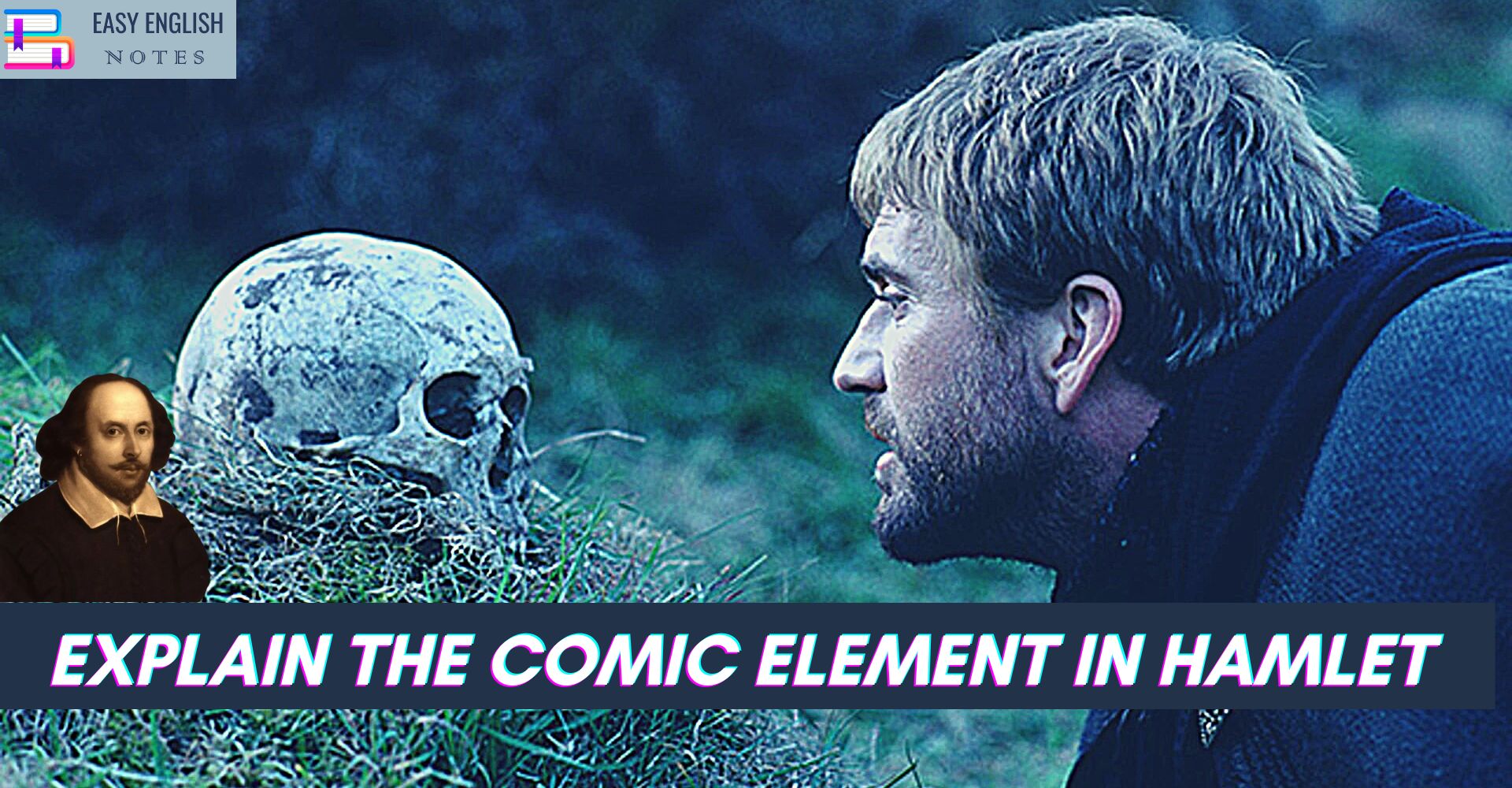The classical critics never encouraged the mingling of the tragedy with the comedy. Philip Sidney condemned the practice of the admixture of the tragic and comic elements, and described it as “matching horn pipes and funerals.” A Romantic dramatist. Shakespeare does not conform to the classical rules and introduces comic elements freely in his tragedies. His plays, in fact, are neither tragedies no comedies, but as Dr. Johnson says “mingled drama”. “The web of our life is of a mingled yarn, Goodland ill together”-as Shakespeare himself says. It is also a mingled yarn of laughter and tears.
In Hamlet we have as much humour as wit, interspersed in different scenes. Humours is the blending of laughter and tears. It is an April day, at once full of rain and shine. Wit, on the other hand has an intellectual appeal, and is at time,. As William Archer points out, “humour with a sting added to it. ”Humour is often based upon incongruity in life.
Hamlet is the hero of a painful tragedy and yet his scintillating humour radiates the play. No other hero of a Shakespearian tragedy has such an inexhaustible fund of wit and humour, which emanates as much from his intellect as his emotion. He freely indulges in puns, quibbles and play upon words. He is often sarcastic, and his wit and humour often takes a sarcastic turn. Some of his witticisms and sarcastic, remarks may be pointed out. When called, ‘my son’ by Claudius, he replies: “A little more than kin, and less than kind.” It sounds like a riddle, and it is not.
Explaining to Horatio why his father’s funeral and mother’s wedding took place almost at the same time, Hamlet says:
“Thrift, thrift, Horatio! The funeral baked meats
Did coldly furnish forth the marriage tables.”
In Act II, scene 2, Hamlet is enjoying foolery with Polonius. In the same scene, his talks with Rosencrantz and Guildenstern are full of fun and serious- ness. His conversation with the wandering players has both sanity and humour. In Act III, Scene 2, when Polonius says:
“I did enact Julius Caesar; I was killed in the Capitol; Brutus killed me,” the punster that Hamlet is, replies:
“It was a brute part of him to kill so capital a calf there.”
Act I. Scene 3 is a domestic scene and provides abundant fun. Laertes and Polonius are equally long-winded in their moral preaching. Polonius asks Laertes to hurry up and delays him: “Yet here. Laertes? Aboard aboard for shame!” The incongruity between his theory and practice excites our laughter, if not ridicule. Seized with the irrepressible spirit of sermonising. Polonius indulges in long and tedious harangues, when he should have asked Laertes to board the ship hurriedly.
The grave-diggers scene (Act V, Scene I) is usually recognised to be the most comical scene in the play. Immediately before the catastrophe Shakespeare has introduced clown age – a thing which very few dramatists would have ventured to do. True, the speeches of the grave-diggers do excite the laughter of the audience with their malapropisms, jokes, puns and songs. And yet we feel that there is a certain irony, which enhances and intensifies the tragedy, when the audience laugh and weep at the same time. Whatever be the reaction of the Elizabethan groundings, who are always tickled to laugh, the grave-diggers’ scene provides dramatic relief even to the intellectual audience. With the shadow of death deepening and lengthening, the audience experience a terrible feeling. Ophelia is dead, and shortly Hamlet will die. The two grave- diggers are supremely indifferent to life through sheer habit. Commenting on this scene, Hudson says:
“For who does not know that the most winning smiles are those which play round a moistening eye and tell the serious thoughts beneath and that the saddest face is that which wears in its expression an air of remembered joy and speaks darkly of sunshine in the inner courts of the soul?”
The merry jests and the display of wisdom of the grave diggers heighten the tragic feeling. It is futile to argue whether Ophelia should have a Christian burial. To the grave-diggers, who are impervious to the natural human emotions, Kings and Queens, princes and princesses are of no importance. They are not the partisans of the tragic drama, which is being enacted. They joke and sing while digging graves. They are proud that they are making houses in the graveyard, which will last till the Doomsday.
The humour of the grave-diggers is not urbane or refined; it is not coarse either. It is with extraordinary artistry that Shakespeare has treated comically of death and suicide graves and dead bodies. The grave diggers always speak complacently, and even pontifically. They air their views on so many subjects.
PLEASE HELP ME TO REACH 1000 SUBSCRIBER ON MY COOKING YT CHANNEL (CLICK HERE)











